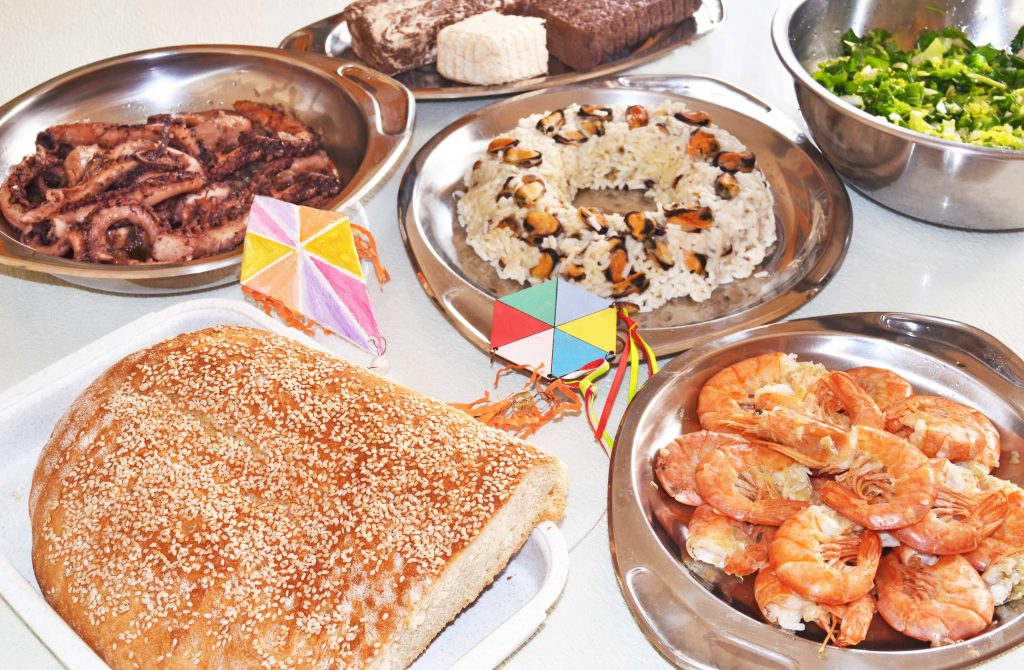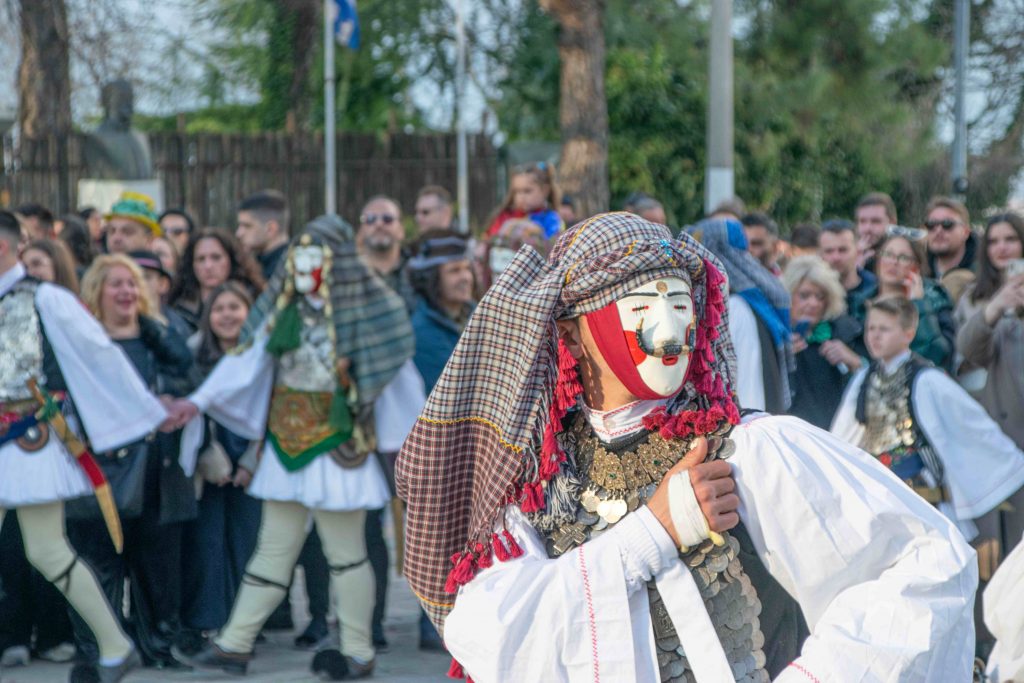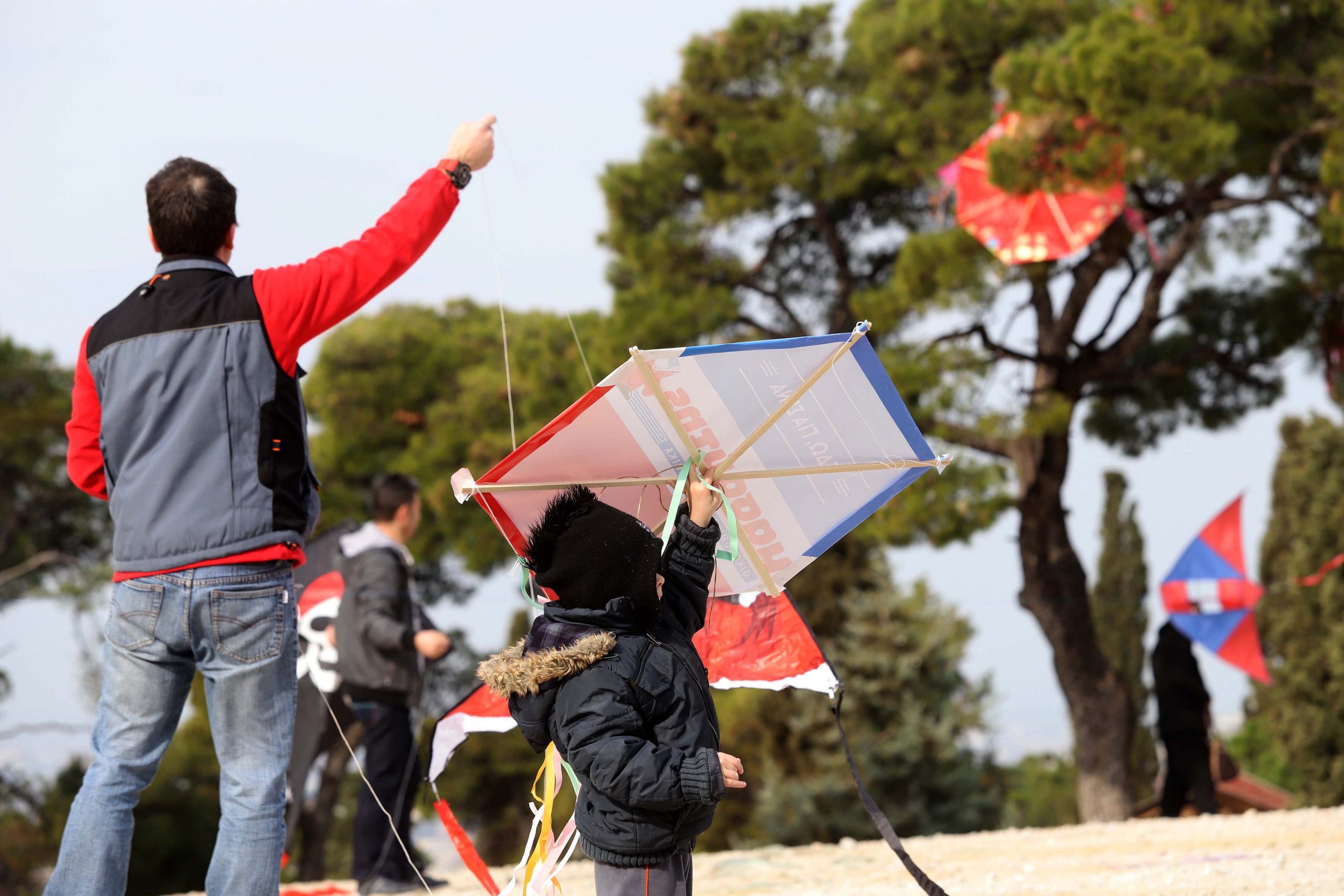Kite-flying, children in fancy dress, picnics where possible, and family gatherings around tables laden with Lenten fare –seafood, legumes and unleavened lagana bread – are the ubiquitous highlights of Clean Monday in Greece.

Clean Monday, the first day of Great Lent in the Orthodox Christian calendar, falls on March 3 this year. It is the start of the fast which culminates in Holy Week and ends with Easter – Pascha in Greek. This year, Easter Sunday will be celebrated by both Western and Eastern churches on the same day: April 20.
Clean Monday, which is also known as Shrove or Pure Monday in the West and Kathara Deftera in Greek, is in many ways the equivalent of Catholic Ash Wednesday. It is a moveable feast which always falls on the sixth Monday before Palm Sunday, which marks the start of Orthodox Holy Week, or 48 days before Easter Sunday.
So there is more to Clean Monday than the merriment, folkloric traditions and rites. An important feast day, it also has a powerful spiritual aspect, marking a period of repentance and fasting for the faithful ahead of Easter. Abstention from all meats and dairy products, as well as oils and wines on weekdays (though olive oil is allowed on Clean Monday itself) aims to prepare the Christian faithful for the commemoration of Christ’s Resurrection on Easter Sunday.
For the Eastern Orthodox Church, and the Greek Orthodox tradition in particular, Clean Monday is the beginning of Clean Week, a detoxification-cum-induction into the Lenten journey: the cleansing of body and soul, a ceremonious endeavor to leave behind all sinful thoughts and practices, to achieve mental abstinence and enter a wilderness of repentance – a reference to the Gospels.
Beyond the weighty religious significance of the day, however, Clean Monday celebrations in Greece and elsewhere in the Balkans are a half-day continuation of the joviality of the three-week carnival that precedes Lent. A period of masquerading and revelry, Apokries culminates in several locations with parades of floats and street performers.

According to Prof. Manolis Varvounis, the first part of Clean Monday is a continuation of the irreverent Apokries, with Great Lent beginning in the afternoon with a Vespers church service.
Varvounis, a professor of Folklore in the Department of History and Ethnology at the Democritus University of Thrace in northeast Greece, cites the well-known custom of vomolohiká in which revelers simulate lewd acts and sing salacious songs focused on copulation and lovemaking, with representations of phalluses prominently displayed.
“… before spring, everything seems dead. So, this was a way for people to ‘arouse’ nature. It’s a pre-Christian ritual and very old; in fact, we think it could possibly predate humanity’s move from hunting and gathering to permanent agriculture. As a form of resurrection and reproduction, it is mirrored by traditions in a great many other cultures.”
Prof. Varvounis told To BHMA International Edition that “They continue until the afternoon of Monday, with church-going afterwards. On Samos, for instance, my native island, when the church bells would ring at 5 in the afternoon on Clean Monday, many of the faithful would burn corks from bottles of wine they’d drunk at the festive table and use them to draw a Cross on their forehead, demonstrating that the fun was over and Great Lent had begun”.



